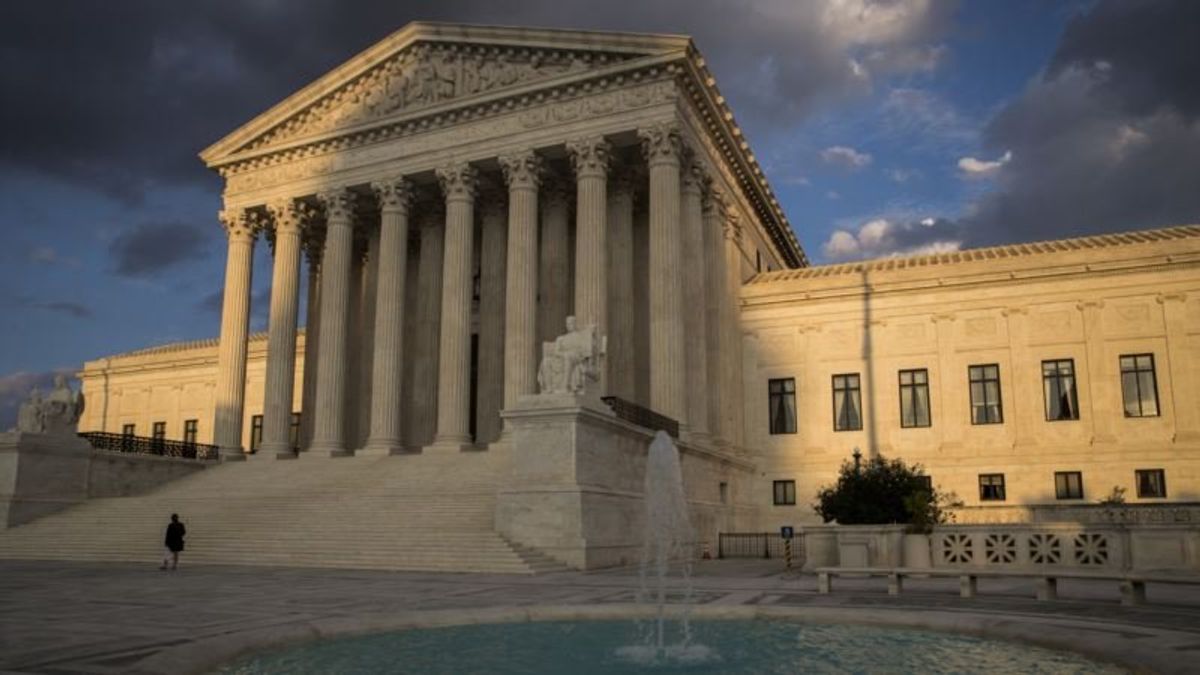
US Democrats Broach Audacious Changes to Elections, High Court
US Democrats Broach Audacious Changes to Elections, High Court

Frustrated in the Trump era, several Democratic presidential hopefuls are proposing dramatic reforms that would shake up US institutions and their centuries-old traditions, including abolishing the Electoral College and adding justices to the Supreme Court.
The changes are not typically debated in the country's presidential campaigns, and remain largely out of reach for the moment, given the paralysis in a divided Congress and certain opposition by Republicans.
But they represent some of the new ideological litmus tests being proposed by a left-leaning party still smarting from Donald Trump's 2016 victory and desperate to oust him in 2020.
On Monday, US Senator and presidential hopeful Elizabeth Warren offered concrete support for scrapping the election system that has endured fierce demonization by Democrats because it allowed two Republicans to recently win the presidency despite losing the popular vote: Trump in 2016 and George W. Bush in 2000.
"My view is that every vote matters," Warren told a townhall meeting in Mississippi, arguing that the southern state along with several populous ones like California rarely receive presidential candidates because they aren't considered battlegrounds.
"I think everybody ought to have to come and ask for your vote," she said.
"We can have national voting, and that means get rid of the Electoral College."
Other Democrats have warmed to the idea, including potential presidential contender Pete Buttigieg, the mayor of South Bend, Indiana who said ending the system would encourage greater voter participation at the national level.
Another proxy debate for Democrats as they weigh who will be their standardbearer: whether to expand the Supreme Court beyond its current nine members.
Warren and two other candidates, Senators Kamala Harris and Kirsten Gillibrand, told Politico they want to address the issue.
Two 2020 hopefuls, Buttigieg and former congressman Beto O'Rourke, have floated the idea of expanding to 15 justices: five nominated by Democrats, five by Republicans and the remaining five picked by the other 10.
Trump rejected the suggestions Tuesday, saying Democrats were seeking to return the court to a liberal lean after it shifted to the right with the president placing conservative nominees Neil Gorsuch and Brett Kavanaugh on the bench.
"It'll never happen. I guarantee it won't happen for six years," Trump said, referring to his remaining time in office should he win re-election.
Democrats are potentially seeking retribution for what they see as grievous political injustices.
Several Democratic lawmakers say Republican leaders' refusal to consider Barack Obama's nominee, Merrick Garland, is tantamount to stealing a Supreme Court seat, and liberal activists have pushed for rebalance through expansion of the court.
Constitutional scholar Erwin Chemerinsky, a professor at University of California, Berkeley Law School, says it's "premature" for Democrats to talk about packing the court.
"There are difficult issues and it only matters if the Democrats win the presidency and both houses of Congress," Chemerinsky told AFP.
Ignoring 'rural' America?
Achieving another Democratic goal, abolishing the Electoral College, would also be difficult.
It would require lawmakers to pass a constitutional amendment — no easy feat in a paralyzed Congress — and then ratification by 38 out of the 50 states.
The current system consists of 538 electors — the total number of members of the US Senate and House of Representatives, plus three electors for the capital Washington — who vote in favor of the candidate who gets the most votes in a state.
Securing 270 electoral votes wins the presidency.
In nearly all states, it's a winner-take-all proposition, even if the winner does not secure a majority, such as when third-party candidates are on the ballot.
Trump, for example, won swing state Pennsylvania with just 48.2 percent of the vote, but earned all 20 of its electoral votes.
Only Maine and Nebraska allot electoral votes according to who wins the states' congressional districts. The system is a step closer to elections decided by a nationwide popular vote.
Another option is gaining momentum. A handful of Democrat-leaning states including California, Illinois and New York have joined a compact aiming to elect presidents based on who wins the popular vote.
On Friday, Colorado became the first swing state to join the group.
Critics argue that the Electoral College minimizes the role of millions of voters in several populous states because the results there are rarely in doubt.
The system is lauded by Republicans because it forces candidates to earn votes from various parts of country, not just the big cities.
"The desire to abolish the Electoral College is driven by the idea Democrats want rural America to go away politically," tweeted Republican Senator Lindsey Graham.
 Trump Accuses Twitter, Facebook, Google of Siding with ‘Radical Left Democrats’Next PostMueller’s Most Devoted Fans Anxiously Await his Report
Trump Accuses Twitter, Facebook, Google of Siding with ‘Radical Left Democrats’Next PostMueller’s Most Devoted Fans Anxiously Await his Report





